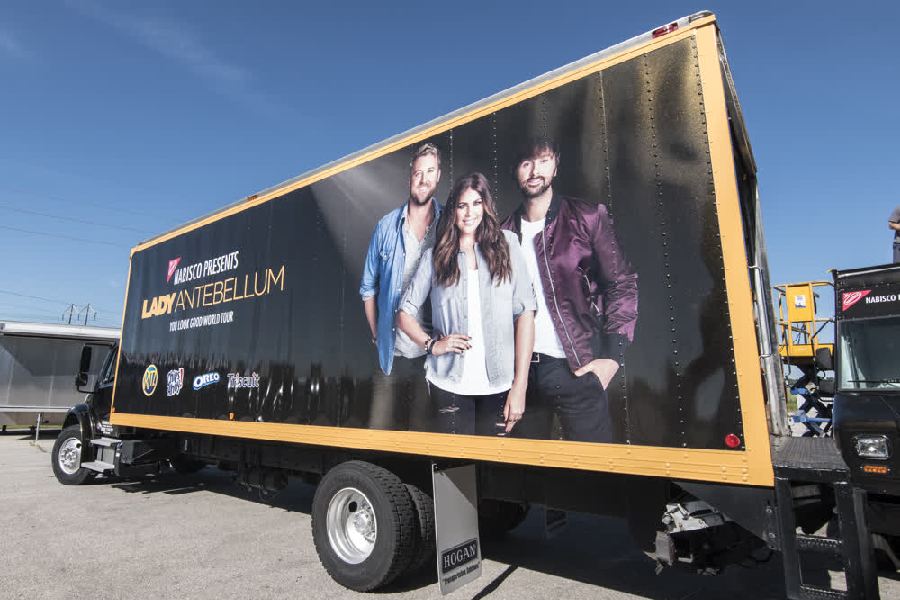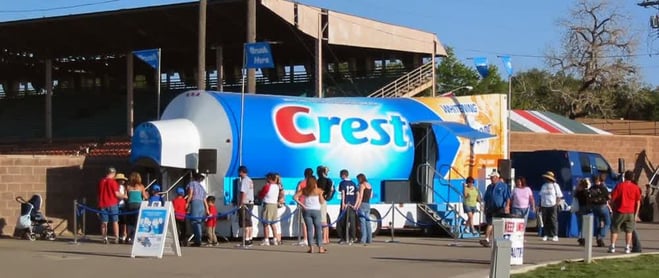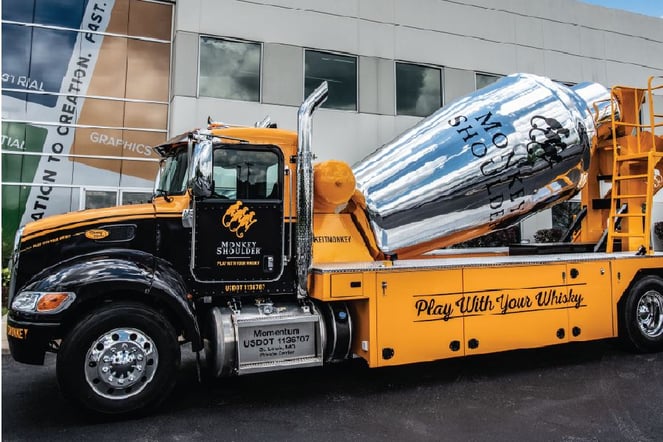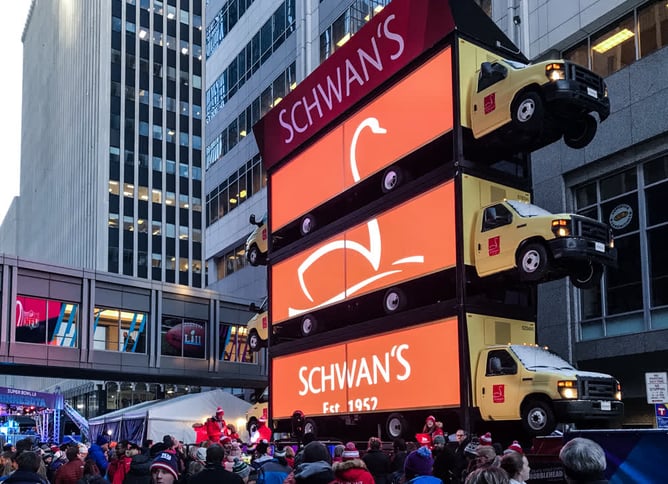How Does Experiential Marketing Impact Consumer Engagement at Events?
Personal experience has always been the best way to learn or get familiar with something. That’s one of the many reasons why experiential marketing...

Marketing is an important aspect of any successful business. It helps companies increase brand awareness and reach new potential customers. However, even though you may have a flawless marketing strategy, it won’t be useful if you don’t know how to analyze its results. That’s why we want to elaborate on how to measure event marketing success and the steps in the process.
Explaining the most important marketing KPIs and metrics gives you a better overview of your strategies and their efficiency. Also, by defining what makes event marketing successful, you’ll know how to easily determine your areas of improvement and optimize your efforts. This way, you’ll have a more thorough event analysis and achieve better results in the long run.
Continue reading to discover what metrics determine event marketing success and how to use them for your business’s benefit!
 Source: craftsmenind.com
Source: craftsmenind.com
Event marketing is a type of experimental marketing that’s conducted through promotional events and memorable experiences. While many confuse them with event management, it doesn’t involve promoting, organizing, and conducting events. Instead, it focuses on corporate storytelling by combining the brand's message with interactive components.
Since the main goal of such marketing efforts is to drive audience engagement, it’s based on the emotional aspect of human behavior. Thus, by giving the audience an emotional stimulus and a memorable experience, you can achieve a long-lasting impression for your business.
As these events can be done online and offline, your business can participate in them through the roles of hosts, co-hosts, and sponsors. The reason why many people turn to this marketing opportunity is due to its numerous benefits. So, it’s considered an effective marketing effort due to the following advantages:
Lastly, since there are different types of event marketing, the most common ones are online marketing events, webinars, live streaming events, in-person marketing events, trade shows, appreciation events, etc. If you’re looking for the best event marketing trucks, contact Craftsmen Industries, and we’ll find the best solution for your business!
Before explaining how to measure your event marketing success, remember that each business has its unique needs and goals. So, it’s best to first define your objectives before analyzing the analytics. This way, you won’t get lost in unnecessary data, and you’ll be able to focus on the metrics that matter.
That being said, here are some effective ways to measure event marketing success:
KPI is short for key point indicator and is the most efficient way to measure your marketing success. As mentioned, you must define your campaign objectives before tracking these metrics. Once you’ve determined which KPIs to use, you can easily analyze them and convert them into new ideas for upcoming events.
Furthermore, there are many types of KPIs you can use depending on your business type and goals, including the following ones:
Since your focus will be on tracking the event marketing success, the KPIs you want to look into are ticket sales, attendance, sales leads, and ROI.
Since businesses develop event marketing strategies mainly to reach new customers, you can also try tracking the event ROI to measure success. ROI stands for return on investment and is used to calculate the monetary value of a specific investment when compared to its costs. While you can manually calculate, many investment calculators are also available online.
To successfully interpret your event ROI, you can implement these steps in the process:
The total cost to execute gives you a 360 view of the event costs. Since this involves both upfront and hidden expenses, you have to keep every little detail in mind. While the upfront ones are easy to measure because they’re already part of the budget, you mustn’t overlook the hidden ones.
So, besides keeping track of the venue, catering, and printing costs, you should also include the time and people needed to execute the event.
Measuring the objective results may vary depending on the reason you’ve hosted the event. While many businesses believe that the primary metric they should calculate is income, remember that not every goal is money-oriented. Thus, objective results can come in the form of customer acquisition, customer retention, lead generation, business development opportunities, revenue generated, and appointments set.

Source: craftsmenind.com
Measuring subjective outcomes is usually harder to track than objective results. This is due to the soft metrics required to measure brand awareness, enriched customer relationships, networking, and recruitment. Since this data can be gathered by calculating booth visitors, attendees, and online mentions, it’s important to pay attention to the details. This leads us to the next way of measuring event marketing success.
Another great way to measure event marketing success is through social listening. This process involves turning your attention to online conversations and analyzing what the audience says about your business and event. It includes monitoring social media accounts and tracking the feedback your brand is getting from the people talking about it.
While this tactic may sound effective, remember it doesn’t work with every user persona. You must know your target audience before implementing this technique to track your event's success. For example, events like festivals are only expected to get more social media coverage than conferences meant for an older audience.
One of the best ways to track social mentions is through pre-determined hashtags. When planning your event, brainstorm hashtag ideas that are unique, creative, and easy to remember. This way, when people start talking about the event once it’s over, you’ll have a clear overview of its effect on the audience.
While you can develop your own unique social listening strategy, many online tools are also available. If you don’t have any prior experience in the subject, we highly recommend you check out Hootsuite, Sprout Social, or Hubspot.
The next way you can measure event success is by implementing event apps. However, this tactic works best with online and hybrid events. Not only do these apps allow various benefits for the organizers, but they also provide real-time information for the audience. So, how do you measure event engagement with such apps?
The simple explanation is that some apps incorporate live polls and surveys that engage the audience to interact with the brand. This way, you can get more genuine reactions from potential customers and discover if the event meets their expectations. Even though polls are often underestimated, they’re the ideal technique to get insights into the audience’s experience and how to optimize your future events.
That being said, here are some of the benefits of using event apps for tracking event marketing success:
Similar to the purpose of event apps, event surveys are a great way to get direct personal experiences from the audience. They’re used to collect insights from the attending audience and can be customized based on your needs.
However, to get the best results, you’ll have to take the time and brainstorm ideas about the appropriate questions to ask the attendees. If you don’t know where to begin, you can ask the audience how much time they’ve spent there and how they liked the event. Then, you can continue building from their own experience to ask their opinion on future updates they may want to see.
Once you’ve crafted the surveys, the best time to give them to the audience is right after the event has ended. This way, their experiences will still be fresh, and they’ll be able to give you their honest opinion.
Post-event sales are one of the most obvious ways to measure event marketing success. Many businesses we’ve come across have decided to host such events in the hopes of generating sales. If that’s your main objective, then you should focus on KPIs that track the post-event sales and how they benefit your business.
Furthermore, with a sales-motivated event, you can create a strategy to map your customer’s journey. This way, you’ll be able to analyze each step of the process and identify the areas of improvement.
You can further optimize the customer journey by having a clear view of why the potential customer has decided to fall off the trajectory. Not only will you achieve higher customer satisfaction, but you’ll also drive more sales.
 Source: craftsmenind.com
Source: craftsmenind.com
After discovering how to measure event marketing success, you can use the necessary KPIs and metrics to optimize your strategies and achieve better results. Before you start crafting your next event, we always recommend you take the time to define your goals and objectives. This will give you a solid foundation which you can build from.
If you ever need help planning your events, you can always contact our team at Craftsmen Industries to help you. Not only can we find the best solutions for your business, but we’ll also guide you through each step of the process. Contact us today, and let us help you turn your ideas into reality!

Personal experience has always been the best way to learn or get familiar with something. That’s one of the many reasons why experiential marketing...

Discover how experiential marketing events can elevate your brand and engage your audience like never before.

Marketing is one of the most important aspects of running a successful business. Marketing brings awareness to your products or services, which can...